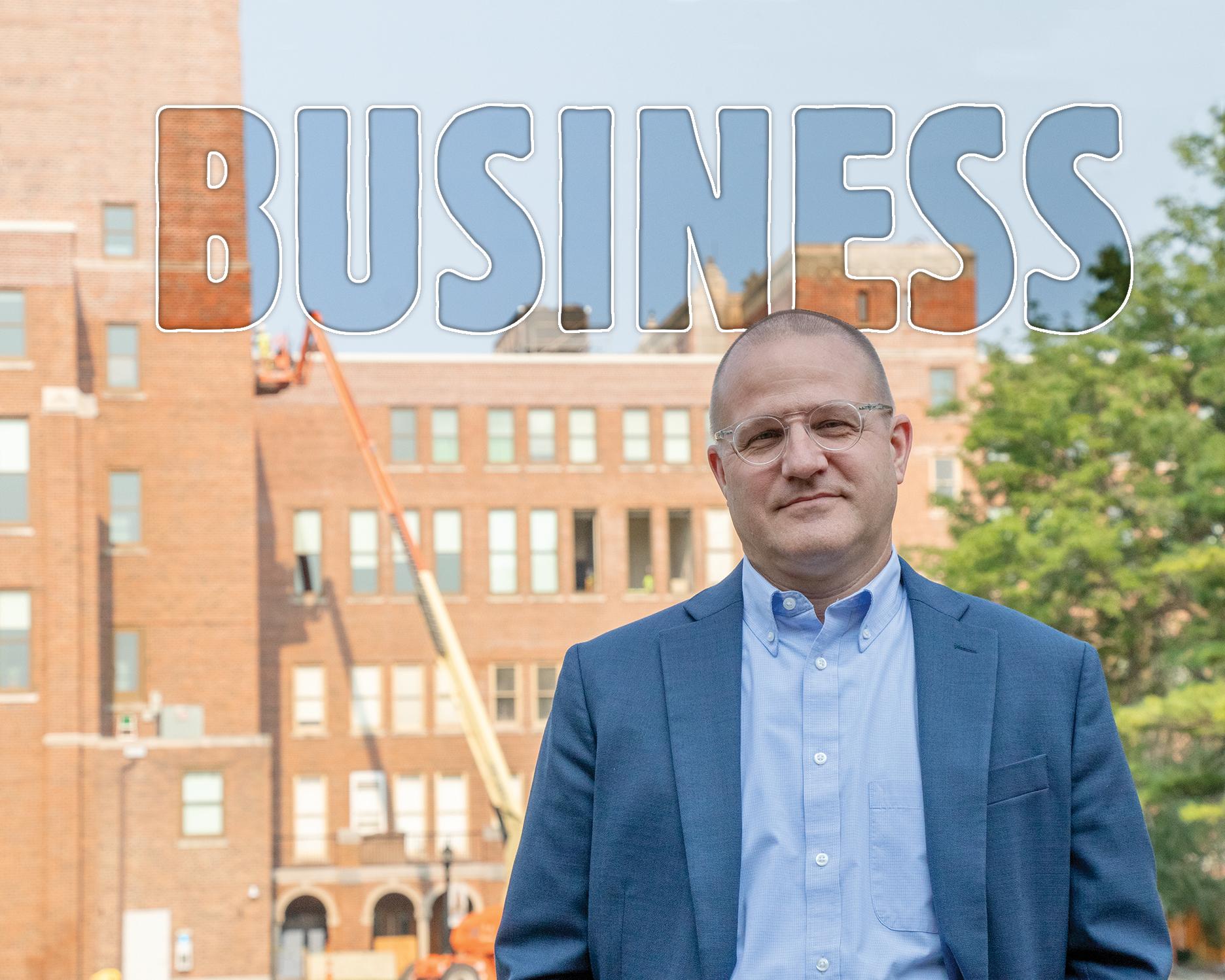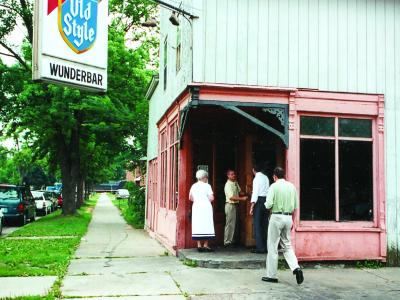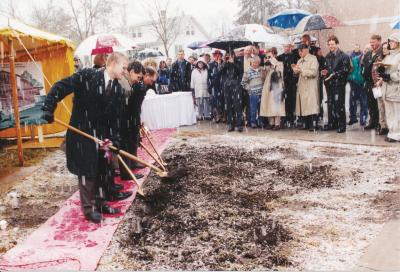
Viterbo was a very different place when Todd Ericson was hired as the college’s controller in 1993.
The budget was one fourth and the total assets were just over 12% of what they are today, and campus facilities such as the School of Nursing Building; the Amie L. Mathy Center for Recreation and Education; the D.B and Marge Reinhart Center for Ethics, Science, and Technology; the Outdoor Athletics Complex; Rose Terrace; and Clare Apartments were at best a very distant dream.
Ericson is retiring in December as Viterbo’s vice president of finance and administration. He will leave the university in the strongest financial shape in its history.
“The most important thing for me has always been the stewardship of our resources and improving the financial status of the university,” Ericson said. “I’m very proud of what we’ve accomplished.”
While quick to credit others, Ericson has played a key role in some of the most important decisions of the last three decades, from campus expansion and improvements to the university’s conservative budgets, contingency funds, and low debt.
“Todd is the best accountant I have ever worked with,” said Gene Alberts, who served with Ericson for more than 17 years at Viterbo before retiring last year. “He is efficient beyond belief and is always willing to help other employees and students. An absolute joy to work for, Todd was extremely professional and considerate. He always had a great sense of humor and could solve any problem.”
Ericson earned a degree in accounting from the University of Wisconsin-Eau Claire and began his career at a firm in La Crosse. Wanting to work in public accounting, he accepted the controller position at Viterbo four years later. The controller at the time was responsible for student billing and accounts receivable, the general ledger, and the financial statement and related documents. Ericson explained that while the college had a balanced budget and was stable, there was little to no money for physical plant projects. That would soon all change however, thanks to one calculated risk.
University leaders President Bill Medland, Vice President for Enrollment Roland “Buzz” Nelson, and Director of Financial Aid Terry Norman ’84 implemented a tuition discount model and changed the timing of the financial aid awards to help address the affordability of a Viterbo education at the beginning of the recruitment process. The idea was to increase net revenue by increasing enrollment. The risk of course was that raising tuition discounts without an increase in overall enrollment would have dire financial consequences. While common today, the practice was quite rare in the mid 1990s. Staff conducted a massive phone and mail marketing and recruitment campaign, touting the college’s affordability as well as the other virtues of a Viterbo education—small class sizes, student support services, etc. The effort turned out to be a huge success.
“It had an extraordinary impact on undergraduate enrollment (up 50%) and the college’s finances,” Ericson said. “We were able to purchase new equipment and plan for campus renovations and capital projects. It really allowed us to transform the campus and build financial stability. We also no longer had to rely on gifts to balance the budget.”
A willingness to explore and implement graduate and degree completion programs, especially the Master of Arts in Education, was another great investment, Ericson said. Adding and changing programs and diversifying revenue streams has allowed the university to adapt to external market forces and remain relevant in its academic offerings over the years, he said. Viterbo has benefited from good leaders in key areas who were willing to make those necessary but sometimes difficult changes. Community partnerships and outstanding benefactors have also been keys to the university’s success over the past three decades.
Through it all, it has been Ericson’s role to advocate for fiscal restraint. He is an important voice in what he says is the usual “push-pull” of the revenue vs. tuition discount and other expenses in the budgeting process that happens at every private university. Ericson has also made sure his staff remember their most important priority.
“We need students to come here and stay here,” Ericson said. “That hasn’t changed over the years, and we do our best to help the students understand the billing and financial aid process and resolve any issues they may be having. We have liberal payment policies and do the little things like walking them down the hall to the financial aid office.”
Just 54 years old, Ericson plans to work again in some capacity after a well-deserved break.
“I have given everything I have to the institution, but it has been a good experience for me too,” he said. “That’s a sign of any good job and place to work. I have really enjoyed the people, and the employees I have supervised in the business office, financial aid, human resources, physical plant, and IIT, who work very hard to little fanfare and often too much criticism. We’ve done great work to both advance the institution and be compliant with federal regulations. I still like accounting and financial work, but I feel responsible to all Viterbo employees, and the work and demand never ends. I’m happy to take this hiatus, spend more time with family, and plan the next part of my life.”


